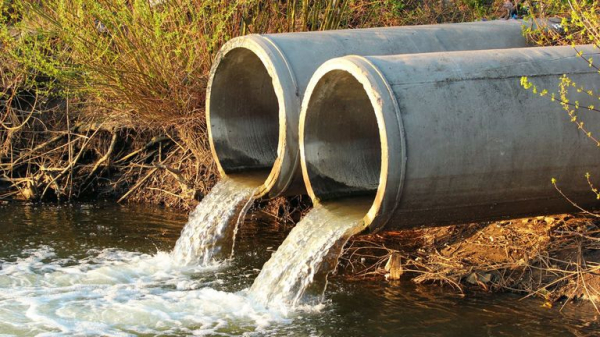
Britain’s environmental protection watchdog has accused the government and two public bodies of failing to comply with environmental laws in relation to the regulation of sewer overflows.
The Office for Environmental Protection (OEP) says it has identified possible failures by the Department for Environment, Food and Rural Affairs (DEFRA) and the Environment Agency (EA) to keep sewage companies in check.
Ofwat – the regulator for the water and sewerage industry – also faces the same accusation.
The OEP says it believes there may have been “misinterpretation of some key points of law” that have allowed discharges to occur more often than they should.
The announcement comes following a more than year-long investigation by the OEP into the regulation of combined sewer overflows (CSOs).
CSOs work as a relief mechanism for the UK’s network of sewers, allowing water firms to pump untreated sewage into the sea and rivers during heavy rainfall in order to prevent them overflowing.
But these discharges also harm freshwater, coastal and marine environments, and can impact the people who use the water.
Therefore, the law states they should only be used in exceptional circumstances.
Untreated sewage was pumped into England’s rivers and seas at least 301,091 times last year – an average of 824 a day – according to Environment Agency data.
That represented a fall of almost a fifth on the 372,533 spills in 2021 – although the EA said that had been “largely down to dry weather, not water company action”.
In May, industry body Water UK issued a public apology of behalf of England’s water firms for “not acting quickly enough” on overflows – and vowed to spend £10bn to clean up their act.

‘Authorities may have interpreted law differently’
The OEP launched its investigation following a complaint alleging failures in the monitoring and enforcement of water companies in relation to discharges.
Information notices have been issued to each of the three bodies setting out the details of the possible failures, with the authorities having two months to respond.
They will be able to agree to disagree with the OEP’s assessment and set out any proposed remedial action or practical measures to address issues, according to the watchdog.
Helen Venn, the OEP’s chief regulatory officer, said: “As a result of our investigations so far, we think there may have been misinterpretations of some key points of law.
“The core of the issue is that where we interpret the law to mean that untreated sewage discharges should generally be allowed only in exceptional circumstances, such as during unusually heavy rainfall, it appears that the public authorities may have interpreted the law differently, permitting such discharges to occur more often.”
She added: ”Improving the quality of water in our rivers and seas is a complex challenge. There are no quick fixes.
“We recognise that a great deal is already being done to tackle the issue of untreated sewage discharges, and we welcome the intent of government measures such as the Plan for Water and storm overflow targets, as well as commitments to increase investment.
“We are aware that both the Environment Agency and Ofwat have investigations under way. We await the outcomes with interest.”

‘We share ambition to improve water quality’
An Ofwat spokesperson said it “welcomed the OEP’s considerations, particularly on the clarity of responsibilities for the protection of the environment”.
“We will work with them as their investigation moves forward,” the spokesperson said.
A DEFRA spokesperson said: “The volume of sewage discharged is completely unacceptable.
“That is why we are the first government in history to take such comprehensive action to tackle it, driving forward more investment, stronger regulation and tougher enforcement – and it’s why we are introducing a legally binding target to reduce storm overflows.
“While we do not agree with the OEP’s initial interpretations, which cover points of law spanning over two decades, we will continue to work constructively with the OEP on this issue.”
An Environment Agency spokesperson said: “We welcome this investigation from the Office for Environmental Protection and we share their ambition to drive improvements in water quality.”
